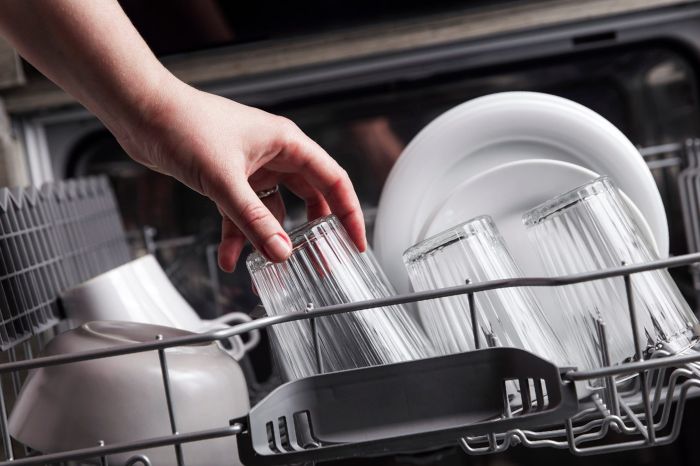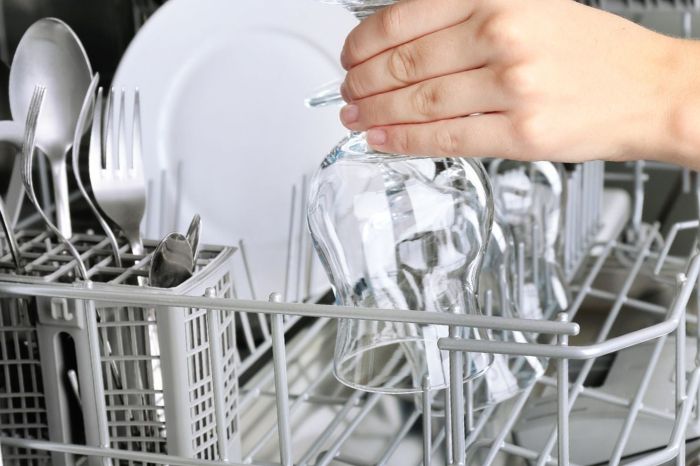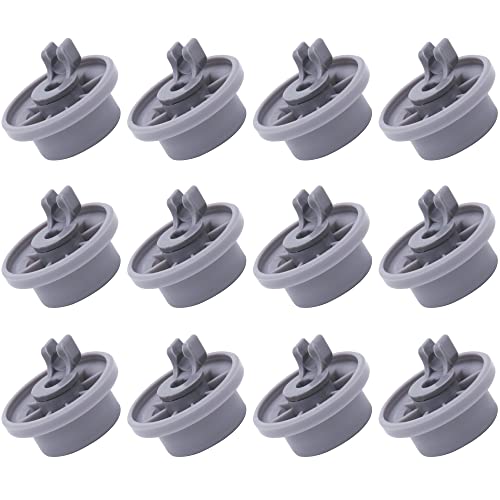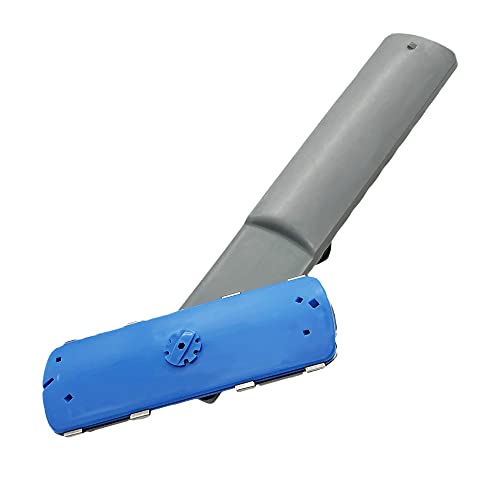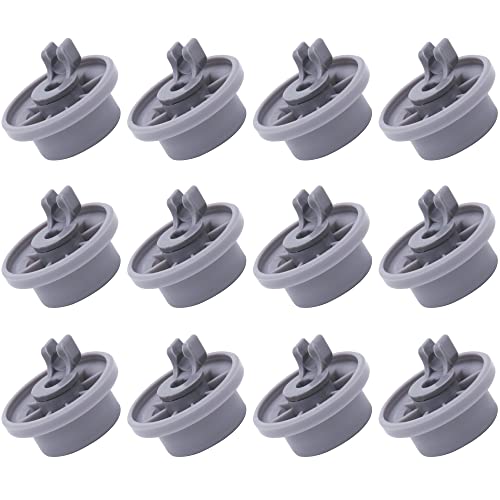How Does A Dishwasher Know How Dirty The Dishes Are?
As our lives continue to get busier, technology has continued to improve to keep up with our demands. One of the inventions that has saved us a lot of time and effort is the dishwasher. With the dishwasher, we no longer have to stand by the sink, scrubbing dirty dishes until our arms ache. Instead, we can load our dishes into the dishwasher, press a few buttons, and let it do the work for us.
But have you ever wondered how does a dishwasher know how dirty the dishes are? Or how it knows when to use less or more water and detergent? The answer lies in the technology used in dishwashers. In this article, we will be discussing the various technologies used to measure dirty dishes in a dishwasher, the kinds of sensors used in a dishwasher, and how you can make sure your dishwasher is working efficiently. Let’s find out with me!
What Technology Is Used to Measure Dirty Dishes in a Dishwasher?
Accurately determining how dirty dishes are before cleaning can be challenging. To solve this problem, advanced technology has been incorporated into dishwashers to measure the level of dirt on each dish. This technology uses sensors and intelligent algorithms to evaluate the level of grime present on the dishes and adjust the wash cycle accordingly, optimizing cleaning effectiveness while conserving energy and water.
The sensors utilize a combination of optical, chemical, and mechanical measurements to analyze the dish’s surface and detect any buildup or debris present. The optical sensors use light reflection to determine variations in the surface texture of the dish, which can provide information about its level of cleanliness. The chemical sensors, on the other hand, measure the pH level of the water in the dishwasher to detect the presence of food particles or other contaminants. Finally, the mechanical sensors use pressure sensors to detect the amount of residue or debris on the dish.
Once the sensors have analyzed the dish’s surface, the dishwasher’s advanced algorithms come into play. These algorithms determine the optimal wash cycle based on the level of grime detected. For example, if the dish is heavily soiled, the dishwasher will use more water and a more robust cleaning cycle, while lightly soiled dishes will require less water and a gentler cleaning cycle. This precise cleaning technology not only improves cleaning efficiency but also saves energy and water, thereby reducing the utility bill.
Incorporating advanced technology into dishwashers has revolutionized the cleaning process, delivering a new level of convenience and efficiency. The measurement technology used to detect dirty dishes, coupled with intelligent algorithms, ensures that each dish is cleaned effectively, conserving resources and saving money in the process.
What Kinds of Sensors Are Used in a Dishwasher?
Dishwashers are an essential household appliance that is used to clean and sanitize dishes. In order for a dishwasher to work efficiently, it requires a variety of sensors to detect and monitor the different processes that take place throughout the cleaning cycle. One of the most common sensors used in a dishwasher is a temperature sensor. This sensor is responsible for detecting the temperature of the water in the dishwasher and ensuring that it is at the optimal level for cleaning and sanitizing dishes.
Another important sensor used in dishwashers is a soil sensor. This sensor is able to detect the level of soil and debris on the dishes being cleaned and adjusts the cleaning cycle accordingly. This means that if the dishes are particularly dirty, the dishwasher will run for a longer period of time or use a higher temperature to ensure that they are properly cleaned.
Water level sensors are another type of sensor commonly used in dishwashers. These sensors are responsible for detecting the amount of water in the dishwasher and ensuring that it is at the correct level for efficient cleaning. If the water level is too low, the dishwasher may not clean effectively, while if the water level is too high, there is a risk of flooding.
Finally, dishwashers also contain sensors that monitor the progress of the cleaning cycle. These sensors are able to determine when the cycle is complete and turn off the dishwasher accordingly. Some dishwashers may also have sensors that can detect if there is a problem with the dishwasher, such as a clogged filter, and will alert the user to take action.
How Can You Make Sure Your Dishwasher Is Working Efficiently?
Maintaining your dishwasher’s efficiency is necessary to ensure your dishes are cleaned appropriately without wasting water and energy. Here are some tips to make sure that your dishwasher is working efficiently:
Load the dishwasher properly: When loading your dishwasher, make sure that you use the racks correctly and load them in a manner that allows the water to reach all the dishes. Overloading the dishwasher can lead to poor cleaning performance, resulting in the need to run the dishwasher again and using more water and energy.
Pre-rinse dishes: Pre-rinsing dishes before loading is not necessary as it wastes water and energy, and also shortens the life of your dishwasher. However, it is important to scrape off large food particles before placing them in the dishwasher.
Use hot water: Use hot water when running your dishwasher. The hot water dissolves the detergent properly, helps to remove the stains efficiently, and saves energy.
Check the water temperature: The ideal temperature for a dishwasher to work efficiently is between 120°F (49°C) and 140°F (60°C). If the water temperature is below 120°F (49°C), your dishwasher will not work effectively, and if it is above 140°F (60°C), your dishwasher could damage your dishes.
Clean and maintain your dishwasher: Over time, detergent and debris can build up around the dishwasher’s door seals, spray arm, and other components, reducing its efficiency. Regularly cleaning your dishwasher will help it work better and last longer. Also, clean the filter regularly to prevent food debris from clogging it.
Use the right detergent: Always use a good-quality dishwasher detergent, recommended by the manufacturer, for better cleaning results. Never use hand dish soap as it can create too many suds, leading to an overflow of water and damaging your dishwasher.
Following these tips will help you maintain your dishwasher’s efficiency and ensure that it lasts for a long time. A well-maintained dishwasher can save you money, time, and water.
Conclusion
To sum it up, understanding how a dishwasher works is an interesting and informative topic. Dishwashers are able to know how dirty dishes are thanks to sensors, internal measurements, and heat levels. Taking these factors into consideration, the dishwasher will make informed decisions on which cleaning cycle is best suited for the dishware.
Thanks to technological advancements, most modern machines can accurately identify the amount of dirt and grime present on your dishes and create a tailored wash that will deliver optimum results with minimal waste of water or energy. Want to learn more about what goes on behind your washing machine buttons? Look further into the research to gain more insight and confidence when using a smart dishwashing device. Take charge of your kitchen appliances today!

